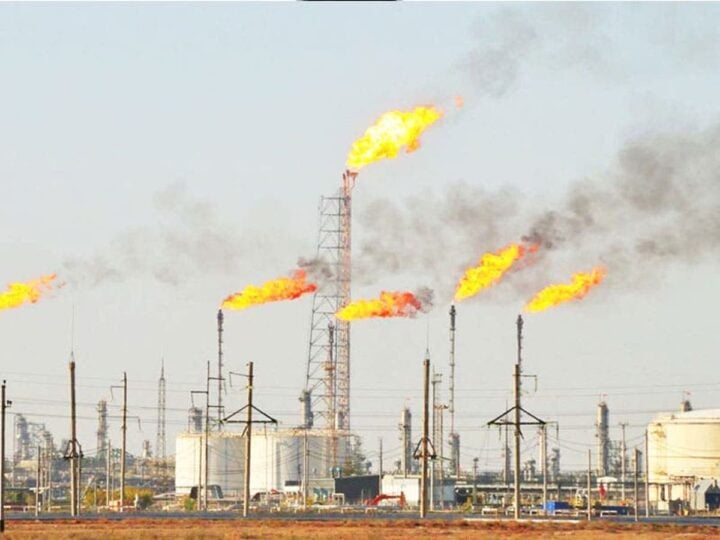BY AKEEM AKINNIYI
As 2022 beckons, the Nigerian government seems prepared to grow the economy using gas with the revelation of a new oil law. This is evident in the views expressed by industry experts at a recent business forum organised by the Nigeria Gas Association (NGA) with the theme ‘Petroleum industry act (PIA): Progress & opportunities in the decade of gas’.
The tempo of the discourse weighed heavily on the speech by Timipre Sylva, Nigeria’s minister of state for petroleum resources, who was represented by Justice Deferaka, his technical adviser: “The bedrock of the government’s ‘Decade of Gas’ pronouncement is collaborative partnership to achieve smooth gas transition by 2060 as stated by the president during the Conference of Parties (COP 26)”.
Reinforcing the need for collaboration and awareness of the immense benefits that gas will bring, the minister said: “We need to collaborate across a broad spectrum and dimensions that is government industry, academia and professional associations like the Nigeria Gas Association. To make that happen, individual and corporate Nigerians, as well as governments at all levels, must develop new enlightenment, an energy literacy that includes a profound understanding that energy pervades all aspects of life”.
Advertisement
Going further about a sense of responsibility that is contributory to development, he highlighted a guiding principle that will enable the creation of an exceptional energy system for the 21st century benchmarked on “responsible development”.
“The development is not just a focus on economic progress alone, but the acknowledgment of the interests and values involved with energy matters along the lines of economic, environmental, social, and energy security. Gas is what Nigeria needs as we face up to a period of profound change,” he stated.
Buttressing it, he gave an indication of the government’s resolve in the passage of the petroleum industry act, which prescribes terms for gas and provides incentives for investors. The federal government’s gas expansion programme seeks to expand gas domestically in transport as in natural gas vehicles, petrochemicals feedstock, fertilizer production, and cutting of gas flaring.
Advertisement
Some of the stakeholders at the forum also expressed their views. One of them, Nigeria National Petroleum Corporation (NNPC) group managing director, Mele Kyari, said, “We know that the framework that is on ground today is enough for people to invest their money and get back their investment and also recover their costs”.
Nevertheless, there have been concerns from the quarters of the NGA at different times in the past demanding that the government should liberalise gas pricing, a factor that is hampering investments in the sector. In a recent communiqué, the NGA stated thus: “The gas supply industry must be anchored on a willing-seller willing-buyer framework to unlock further investments in gas exploration and delivery infrastructure. There should be a removal of price controls and concessional gas tariffs for sections of the market that are critical to achieving overall economic growth objectives”.
The NNPC boss said the corporation was getting huge commitments to form partnerships with local and international partners. But it is not enough to dwell on hearsays as these partnerships are yet to materialise and translate to economic value.
Partnerships with international oil companies have not been so financially beneficial, thereby resulting in poor monetary terms for oil in deep onshore basins before they were reviewed and have precipitated the absence of gas terms after over half a century of oil and gas production. This has led to vast amounts of gas being flared in a country where half the population lack access to electricity.
Advertisement
Emphasizing the need for all hands to be on deck Faruk Ahme, the chief executive for Nigeria Midstream and Downstream Regulatory Authority, whose agency is tasked with creating these policies, said: “Unlocking the huge investment opportunities inherent in this sector request supportive regulatory frameworks that promote investors’ confidence and sustainable development of the sector”.
Despite what many will call huge strides in the right direction, some of the operators at the NGA business forum were quick to point out some of the limitations of the PIA.
The country chair of Shell Companies in Nigeria, Osagie Osunbor, lent his voice: “I’m glad that PIA in its present form now recognises gas as a standalone hydrocarbon provides a legal framework for gas activities like exploration, development, and production in addition to a new framework for gas pricing, while we commend this act, I’m quick to say the act is not yet perfect. For instance, in the current PIA, gas incentives rely heavily on the amount of liquids than gas thus making non-associated gas reserves, that are low in liquids, i.e. dry non-associated gas (NAG) projects, less attractive for development. This, I believe, requires another look into by the government and different agencies as well as the industry”.
The above suggests that the factors available now may not be convincing enough for investors to take the risk contrary to the government’s claims.
Advertisement
Though comparing the data obtained from the Department of Petroleum Resources (DPR) between 2016 and 2021, there have been some significant changes, operators still think there is not much incentive for those developing non-associated gas.
For instance, in 2016, Nigeria’s proven natural gas reserve stood at 192 trillion cubic feet (tcf), made up of 51% associated gas (AG), produced as a by-product of the production of crude oil, and 49% NAG. In 2021, our proven natural gas reserves now stand at 206.53tcf with AG, accounting for 100.73tcf while NAG, now at 105.80tcf, has surpassed associated gas.
Advertisement
Interestingly, the PIA has made tremendous efforts towards making gas a huge economic resource by setting up a new regulatory framework and fiscal terms, enacting cost-reflective tariffs for gas transportation assets, and even instituting better incentives for domestic gas supply and sanctions for the non-supply of domestic gas delivery obligations; the major challenge, however, still remains liberalised pricing.
Akinniyi is a Lagos-based policy analyst. He can be reached via [email protected]
Advertisement
Views expressed by contributors are strictly personal and not of TheCable.
Add a comment






